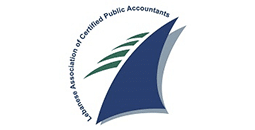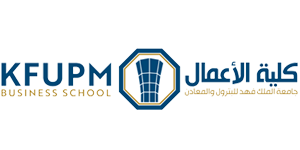In his book “The Fourth Industrial Revolution”, Professor Klaus Schwab, Founder and Executive Chairman of the World Economic Forum, affirms that we are at the beginning of a revolution that is changing the way we live, work, and relate to one another – in a fundamental way, management accountants included. So, how is this revolution different than the earlier ones?
Well, for starters, it is helping mankind become more efficient than any other time in history. Today, the world is simultaneously connecting billions of people through digital networks that have dramatically improved efficiency and organizational performance across every sector, including finance and accounting. Let us break this down a little, shall we? The previous industrial revolutions helped mankind evolve from its reliance on animal power and into mass production, while ushering in the digital era with the rise of the personal computer. This Fourth Industrial Revolution on the other hand, is mainstreaming a range of new and disruptive technologies that are literally fusing the physical, digital, and biological worlds.
Just as mechanization and computerization did generations ago, disruptive technologies such as AI, machine learning, automation, blockchain, augmented analytics, and robotics are set to bring in efficiencies far beyond the scope of human capability. Look at it this way: bots are already answering phones and will be driving us to work soon amongst a host of other services such as baking a cake or whipping up a frothy cappuccino with a smiley face to top it off! As a result, AI and machine learning will become part of every aspect of our lives, including business, and of course our most valued area of interest – the finance and accounting fields.
As the business world, and the finance and accounting profession in particular, prepare for the future, let us examine five ways through which professionals can leverage the transition to place their organizations at the forefront of their respective sectors.
Break down the silos
If CMAs® (Certified Management Accountant) are taught anything, it is that finance and accounting professionals, primarily looked at as number crunchers and compliance enablers, have traditionally operated within silos. And that the infusion of new technologies will mandate that these professionals come out of their silos to look at the bigger picture and gain better operational understanding of the business as well as the wider business ecosystem.
Contribute to the bigger picture
The digital vortex has granted companies exceptional capabilities and unprecedented access to overall business performance at a new depth of granularity. This is enabling leaders to take more holistically evaluated business decisions, thanks to the expanded pool of potential partners within their organization. Just like their colleagues in sales, marketing, operations and HR, finance professionals should not be excluded from these conversations. In fact, their point of view is not only essential, but also key to the big picture.
Become apt in real-time decision making
Digitalization knows no status-quo. As companies get acquainted with this new world order where course correction is basically the new modem operandi, professionals at the helm of companies are presented with a host of means that can enable them to carefully monitor, analyze and in turn recalibrate and customize their products, services, and consumer experiences for optimal performance, like never before. Such a dynamic, demand-centric ecosystem mandates that finance professionals not only gain greater operational knowledge but also be nimble and sure-footed enough to make quick and sound decisions as the ever-fluctuating situation requires.
Know thy regulatory expertise & compliance
The regulatory environment is getting increasingly complex as economic and technological dynamics expand this now globalized marketplace. Digital and consumer security, data localization, fraud and malware-linked disruptions are now not only regular conversation drivers in boardrooms, they are also imposing a minefield of compliance strictures that finance professionals need to be on top of. Better operational expertise and the ability to see the larger picture will help finance professionals effectively navigate this regulatory labyrinth whilst adding tangible value to internal teams and external stakeholders.
Develop an operational mindset
Gone are the days when senior finance professionals could get by with little to no knowledge of the functioning of other departments. In a digitally complex world and as viewed at IMA® (Institute of Management Accountants), finance professionals need significant operational expertise to better understand their organizations and the marketplaces they operate in. A deeper understanding of the ins and outs of the business – be they products, clients, sales cycles, marketing campaigns, etc. – is necessary to help companies navigate amid a complex economic landscape. Finance professionals can take on a major role in the decision-making process, provided they are willing, upskilled, and able to bring comprehensive insight and value to the table.


















